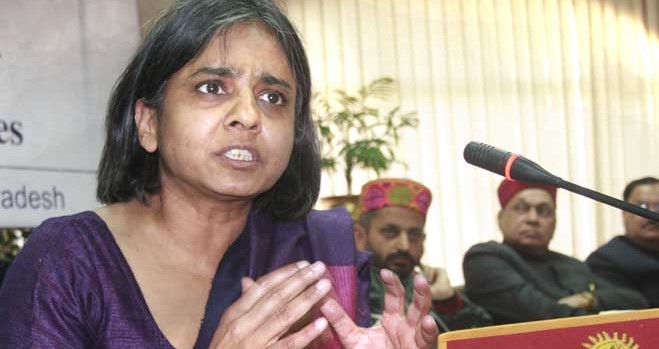“Has the Glasgow Climate Pact succeeded in going far enough to keep the world below a 1.5°C temperature rise – necessary to ensure that our world can avoid the worst and catastrophic impacts of a changing climate? The answer is a resounding ‘no’,” says director general of the New Dehli-based Centre for Science and Environment (CSE), Sunita Narain.

CSE researchers say while COP26 acknowledged that the threat of climate change is real and that urgent actions are needed, it did nothing to raise the commitments to cut greenhouse gas emissions; instead, it highlighted the deep distrust between the already rich and the emerging world and did little to acknowledge that combatting climate change requires cooperation at a scale never seen before.
Says Narain, “The Pact’s fundamental and fatal flaw is in the very first page – where it says, rather dismissively, that ‘it notes the importance for some of the concept of climate justice’ (italics are ours). We cannot erase the fact that certain countries – the US, EU-27, UK, Canada, Australia, Japan and Russia and joined now by China – have consumed roughly 70 per cent of the carbon budget, the space in the atmosphere that is available to keep the world below the 1.5°C temperature rise.
“The challenge is that the world has run out carbon budget, but some 70 per cent of the world’s people still need the right to development. As these countries grow, they will add emissions and take the world to catastrophic levels of temperature rise. It is for this reason, climate justice is not an add-on concept for some, but the pre-requisite for an effective and ambitious agreement. This lack of understanding is at the core of the problem.
“The Glasgow Climate Pact’s only achievement – if you can call it that – is that it acknowledges and reiterates the need for financial support for adaptation – but it does nothing more than this.”
Saying that the climate justice agenda failed, the group noted that COP26 should have acknowledged historical emissions and not diluted or erased them. Climate justice has to be the bedrock of action, it stated, adding:
“About 70 per cent of the world’s population needs access to carbon space for development; they cannot be told not to develop. COP26 needed to confront this inequity and ensure that it is addressed while securing low-carbon pathways for the world.
“It is a mockery of the principle of Common but Differentiated Responsibilities (CBDR) that poor nations with miniscule per capita carbon footprint are asked to constrain their developmental health in trying to abide by the Paris Agreement. COP26 should have ensured that the burden of emissions reduction was shouldered by the historical polluters who currently play a small role.”
While observing that there was progress on climate finance and net zero targets, CSE however noted that the question of coal failed at COP26.
Coal has fuelled developed nations’ prosperity. Developing nations still need it for their own economic growth.
“As many as 29 countries committed to end international public finance for unabated oil, gas and coal production by the end of 2022. China did not sign this statement (but earlier this year, it had announced its decision to stop financing coal internationally).
“The draft cover text of COP26 says “phase-out of unabated coal” — this is watered down from previous versions. It was feared that Saudi Arabia, Russia, China and Australia may not allow this in the final text. On the closing day, a last-minute intervention from India and China weakened the effort to end coal power and fossil fuel subsidies in the Glasgow Climate Pact.
“China has made a statement with the US in which coal phase-out is referred to, but it does not say so in its formal NDC.”
